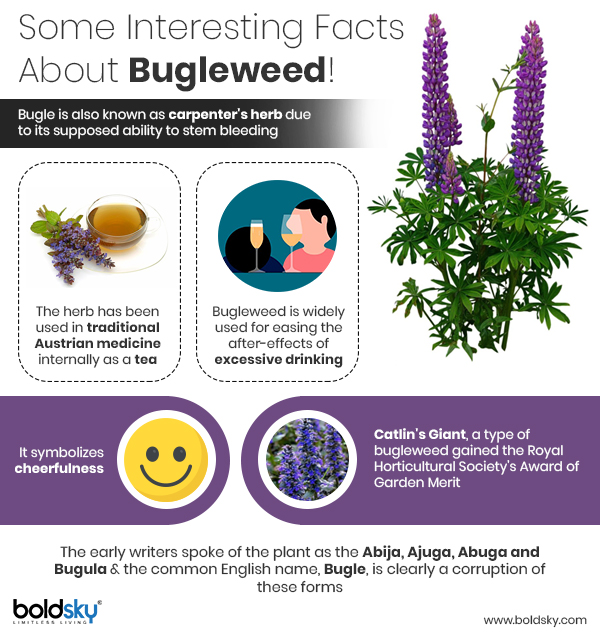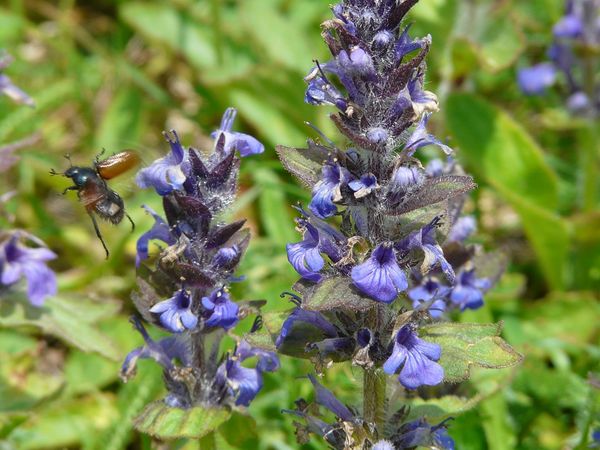Just In
- 2 hrs ago

- 12 hrs ago

- 13 hrs ago

- 17 hrs ago

Don't Miss
- Finance
 Swing Trading Guide: 3 Stock Picks By VLA Ambala On Wednesday, April 24
Swing Trading Guide: 3 Stock Picks By VLA Ambala On Wednesday, April 24 - Sports
 Most Sixes by a Team in IPL 2024 After LSG Do The Double Over CSK on April 23
Most Sixes by a Team in IPL 2024 After LSG Do The Double Over CSK on April 23 - Technology
 Apple Confirms Special Event for May 7: iPad Air, iPad Pro 2024 Models Expected
Apple Confirms Special Event for May 7: iPad Air, iPad Pro 2024 Models Expected - News
 Senator Lambie Calls For Elon Musk's Imprisonment Over Wakeley Church Stabbing Posts
Senator Lambie Calls For Elon Musk's Imprisonment Over Wakeley Church Stabbing Posts - Movies
 Mirzapur 3 OTT Release Date, Platform: When Will Mirzapur Season 3 Premiere On Amazon Prime Video?
Mirzapur 3 OTT Release Date, Platform: When Will Mirzapur Season 3 Premiere On Amazon Prime Video? - Education
 Telangana Inter Manabadi 1st and 2nd Year Results 2024 to be Declared Tomorrow
Telangana Inter Manabadi 1st and 2nd Year Results 2024 to be Declared Tomorrow - Automobiles
 Chrysler Pacifica Marks Seven Years As Most Awarded Minivan With New Campaign
Chrysler Pacifica Marks Seven Years As Most Awarded Minivan With New Campaign - Travel
Kurnool's Hidden Gems: A Guide To Exploring India's Lesser-Known Treasures
7 Science-backed Health Benefits And Side Effects Of Bugleweed
Botanically termed as Lycopus virginicus, bugleweed is a medicinal herb with a plethora of health benefits. Some of the common names of the herb include blue bugle, bugleherb, common bugleweed, gypsywort and many more. The perennial plant belongs to the mint family but does nit have any minty odour.
The leaves, flower, fruit and seeds of the herbal plant are used for various medicinal purposes. The pungent tasting aromatic herb has astringent properties which have been prominently used in Old Europe's folk medicine and also by American herbalists during the early 16th century.

The herb's ability to improve respiratory conditions, regulate sleep patterns and balance the hormonal levels has made it a prominent part of traditional medicine and has now moved forward into the sphere of modern medicine as well[1] .
Let's get to know the health benefits the herb can offer you.
Phytochemical Compounds In Bugleweed
The perennial herb is packed with various phytochemical compounds, including tannins, lycopene, lithospermic acid, chlorogenic acid, caffeic acid, rosmarinic acid and ellagic acid. Apart from that, bugleweed is also a source of magnesium and resin[2] .
The herb also contains tannins, flavonoids, and phenolic compounds.
Health Benefits Of Bugleweed
1. Boosts heart health
Bugleweed is known to help promote heart health as it aids in normalising the heart rate and reducing blood pressure. Due to this, the herb is beneficial in preventing the onset of atherosclerosis, heart attacks, and strokes [3] .
2. Soothes anxiety
One of the major health benefits of bugleweed is that is anti-anxiety. That is, the soothing and sedative properties possessed by the herb help improve the condition by calming the heart palpitations and thereby soothing the stress hormones[4] .
3. Improves sleep quality
The soothing property of the herb makes it beneficial for sleep disorders. That is, the herb interacts with the hormones in your body and helps balance your Circadian rhythms and promote healthy rest. A natural remedy for insomnia, bugleweed is prescribed for individuals suffering from insomnia [5] .

4. Promotes respiratory health
The anti-inflammatory properties possessed by the herb is responsible for it being used to relieve respiratory distress, such as excessive coughing, shortness of breath, and sore throats. Bugleweed is extremely beneficial in soothing and providing relief for respiratory irritations as well as help remove phlegm and mucus from your system [6] .
5. Prevents hormonal disorders
Bugleweed can help prevent various hormonal disorders, especially thyroid problems [7] . It can be used to treat hyper and hypothyroidism, which has curing effects on one's thyroid levels; thereby preventing the onset of hormonal disorders. Consequently, it also aids in regulating the oestrogen levels in women.
6. Speeds-up healing
One of the other major health benefits possessed by bugleweed is that it helps promote the healing process. Applying bugleweed extract topically can promote rapid healing; due to the antioxidant and anti-inflammatory effects of the compounds present in the herb which can promote cell growth, reduce pain and prevent infection [8] .
7. Promotes digestion
The anti-inflammatory properties possessed by the herb can help ease stomach disorders, regulate your appetite and thereby promote your digestion [9] . It is also known to ease the irritation caused by diarrhoea and promotes faster recovery from diarrhoea. Bugle tea also helps in treating various stomach disorders, including digestion, enteritis, gastritis and dyspepsia.
Bugleweed Tea Recipe
Ingredients[9]
- 1 bugleweed tea bag
- 200 ml of water
- Honey for taste
- ½ lemon
Directions
- Boil the water in a pan
- Remove from heat and pour it in a cup
- Place the tea bag and let it steep for 8 minutes
- If you want a strong flavour, let it steep for 10 minutes
- Add the honey and squeeze the lemon
- Mix well and enjoy!
Side Effects Of Bugleweed
The herb can cause allergic reactions in some individuals and symptoms are as follows [10] :
- Hives or welts
- Swelling of the lips, face, or eyes
- Tingling of the mouth
- Headaches
- Abdominal pain
- Nausea
- Vomiting
It may cause anaphylactic shock (a severe allergic reaction), to which the symptoms are as follows:
- Trouble breathing
- Constriction of the throat
- Swelling of the tongue or throat
- Hoarse voice
- Wheezing or coughing
- Dizziness
Precautions
- Individuals with diabetes should avoid the herb due to its hypoglycaemic action which can lower the sugar levels in the body [11]
- Pregnant women and lactating mothers should avoid using the herb
- Avoid the herb if you are undergoing chemotherapy
- Avoid bugleweed if are taking sedatives
- Bugleweed may interfere with blood glucose medication
- People with endocrine disorders such as hypopituitarism, pituitary adenoma or hypogonadism should avoid it
- People with hypofunction, enlarged thyroid or receiving medications for thyroid should not use this herb[12]
- Patients who suffer from osteoporosis or who are taking oral contraceptives or fertility drugs should avoid bugleweed
- [1] Al-Snai, A. E. (2019). A review on Lycopus europaeus: A potential medicinal plant. IOSR Journal of Pharmacy, 9(7), 80-88.
- [2] Wu, S., Sun, Y., Niu, G., Pantoja, G. L. G., & Rocha, A. C. (2016). Responses of six Lamiaceae landscape species to saline water irrigation. Journal of Environmental Horticulture, 34(1), 30-35.
- [3] Dunican, K., Dawson, A., & Lynch, A. (2019). Endocrine Disorders. Principles and Practice of Botanicals as an Integrative Therapy, 97.
- [4] Axterer, M., Müller, C., & Dweck, A. C. (2019). NATURAL ANTI-IRRITANT PLANTS.
- [5] Romero, K., Goparaju, B., Russo, K., Westover, M. B., & Bianchi, M. T. (2017). Alternative remedies for insomnia: a proposed method for personalized therapeutic trials. Nature and science of sleep, 9, 97.
- [6] Carter, S. G., Masiz, J. J., Stephens, L., Zhu, Z., & Patel, K. (2016). U.S. Patent Application No. 15/140,801.
- [7] Sparbanie, T. (2019). The Vascular Flora of Bill Yeck Park: Supporting the Conservation of Local Biodiversity.
- [8] Wu, X. K., & Ng, E. H. (2018). Dietary Supplements, Phytotherapy and Chinese Herbal Medicine in PCOS. In Infertility in Women with Polycystic Ovary Syndrome (pp. 181-193). Springer, Cham.
- [9] Miller, D., & Lynn, S. (2016). U.S. Patent Application No. 14/598,033.
- [10] Lampe, M., & Duggins, D. W. (2016). U.S. Patent No. 9,375,033. Washington, DC: U.S. Patent and Trademark Office.
- [11] Short, L., Freeman, J., & Wade, K. (2017). Examination of Comparative Manual Removal Strategies for Non-Chemical Control of Invasive Non-Native Phragmites australis subsp. australis: PHASE II.
- [12] Gu, X., Huang, N., Gu, J., Joshi, M. K., & Wang, H. (2016). Employing observational method for prospective data collection: A case study for analyzing diagnostic process and evaluating efficacy of TCM treatments for diabetes mellitus. Journal of ethnopharmacology, 192, 516-523.
-
 wellnessGuduchi (Giloy) For Dengue: Can This Herb Reduce Dengue Fever Symptoms?
wellnessGuduchi (Giloy) For Dengue: Can This Herb Reduce Dengue Fever Symptoms? -
 diabetesHow Ashwagandha Helps Manage Diabetes
diabetesHow Ashwagandha Helps Manage Diabetes -
 diabetesCan Ginger Help Prevent And Manage Diabetes?
diabetesCan Ginger Help Prevent And Manage Diabetes? -
 wellness9 Amazing Health Benefits Of Citronella Oil (Lemongrass)
wellness9 Amazing Health Benefits Of Citronella Oil (Lemongrass) -
 wellnessNeem For Diabetes: Health Benefits Of The Wonder Herb To Reduce Blood Glucose
wellnessNeem For Diabetes: Health Benefits Of The Wonder Herb To Reduce Blood Glucose -
 wellness10 Incredible Health Benefits Of Brahmi
wellness10 Incredible Health Benefits Of Brahmi -
 wellnessWhat Is Solomon's Seal? Its Benefits, Side Effects And Recipes
wellnessWhat Is Solomon's Seal? Its Benefits, Side Effects And Recipes -
 nutritionLesser Known Benefits Of Horsetail For Health, Hair & Skin
nutritionLesser Known Benefits Of Horsetail For Health, Hair & Skin -
 healthDo You Keep A Clove Of Garlic Under Pillow? Not To Keep Vampires At Bay, There May Be Scientific Reasons
healthDo You Keep A Clove Of Garlic Under Pillow? Not To Keep Vampires At Bay, There May Be Scientific Reasons -
 healthGet Your Groove On: 5 Health Benefits Of Dancing To Afro Beats
healthGet Your Groove On: 5 Health Benefits Of Dancing To Afro Beats -
 healthIndigenous Delicacies: 5 Rare Indian Wild Foods That Are So Healthy You Should Try It!
healthIndigenous Delicacies: 5 Rare Indian Wild Foods That Are So Healthy You Should Try It! -
 healthHaving Chicken Soup At Home Can Cure These Health Issues
healthHaving Chicken Soup At Home Can Cure These Health Issues


 Click it and Unblock the Notifications
Click it and Unblock the Notifications



